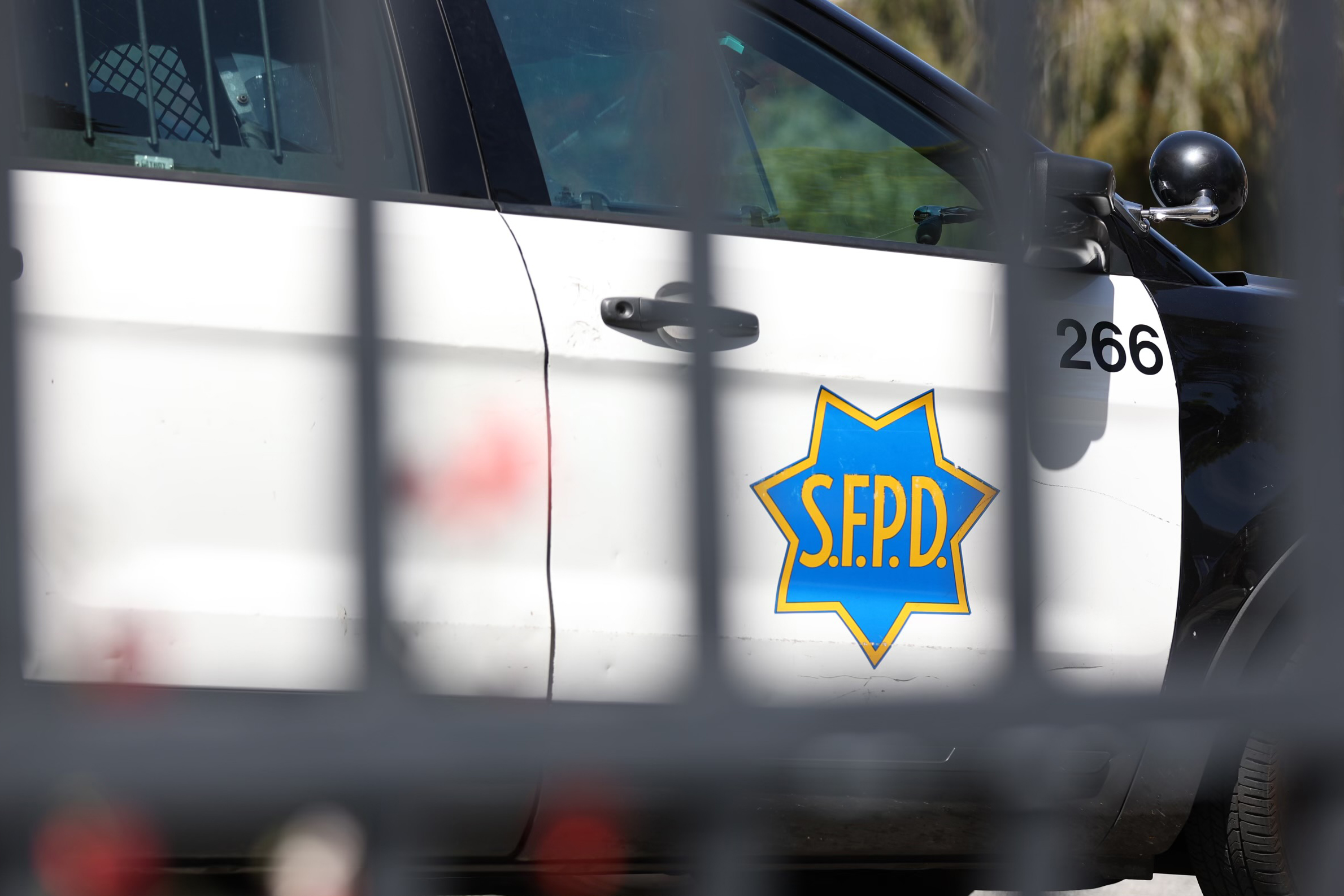A federal gang task force that works with local law enforcement may help shield San Francisco police officers from accountability.
That’s one of the concerns raised about an agreement between federal and local authorities recently unearthed by The Standard.
The agreement, quietly inked by Police Chief Bill Scott in March 2022, lets six San Francisco police sergeants and one officer work with the FBI to investigate criminal enterprises and arrest fugitives. It’s the newest version of a partnership that actually dates back to 1996, police brass say.
But the agreement is under fire for allowing the FBI to withhold records from the city. That means police watchdogs probing misconduct allegations against task force members need federal cooperation to do their jobs.
At a hearing Wednesday called in response to The Standard’s reporting, Police Commission Vice President Max Carter-Oberstone said the arrangement poses a “serious impediment” to those investigations.
“If the FBI can just say, ‘We support discipline, but we kind of don’t want this information outside of our bubble,’” Carter-Oberstone said, “it kind of immunizes officers from having not even discipline, but just an investigation into whether there was a violation of policy in the first place.”
This situation is not hypothetical, according to a Department of Police Accountability official. The agreement recently barred the watchdog agency from fully investigating two cases against officers, department attorney Diana Rosenstein told the commission.
“This particular [agreement] is an impediment to obtaining information in discipline cases in a timely, expeditious fashion and obtaining all of the evidence,” Rosenstein said. “So we have concerns.”
Rosenstein said the Department of Police Accountability was unable to complete an investigation into whether officers committed misconduct because her department spent eight months fighting for just some of the records, and could not get others at all.
SFPD attorneys cited FBI involvement as the issue, Rosenstein said.
At least one of those cases appears to involve allegations that officers may have accessed military-grade surveillance technologies owned by the Northern California Regional Intelligence Center—one of the anti-terrorism “fusion centers” that sprung up around the nation after 9/11.
Rosenstein said officers can use the equipment for their investigations, but she was unclear what that equipment was.
“We were not able to get information about that equipment in our case,” Rosenstein said. “The other thing we were not able to get was certain questions answered by the officers during their interview because they invoked the FBI [agreement].”
Reached by phone, NCRIC director Mike Sena said the center does not have military-grade equipment. Sena said NCRIC does loan agencies “rudimentary investigative tools” such as surveillance cameras to mount on poles.
NCRIC also runs police bulletins for serious crimes through facial recognition software, but not at SFPD’s request. San Francisco law bars city agencies from using new surveillance technologies without prior approval.
The claims from Rosenstein were news to Chief Scott, who was troubled the DPA didn’t tell him about them sooner.
“It’s incumbent upon us, as well as our federal partners, to make sure that these types of things, that the information is provided to let us resolve these types of issues when they come up,” Scott said at the hearing.
The chief said he still has faith that he can hold officers accountable and he intends to follow up on the allegations.
